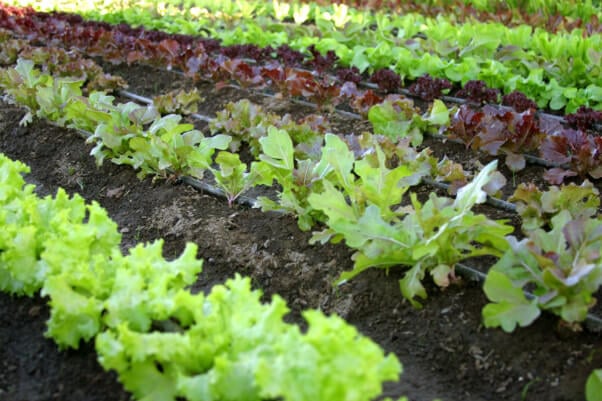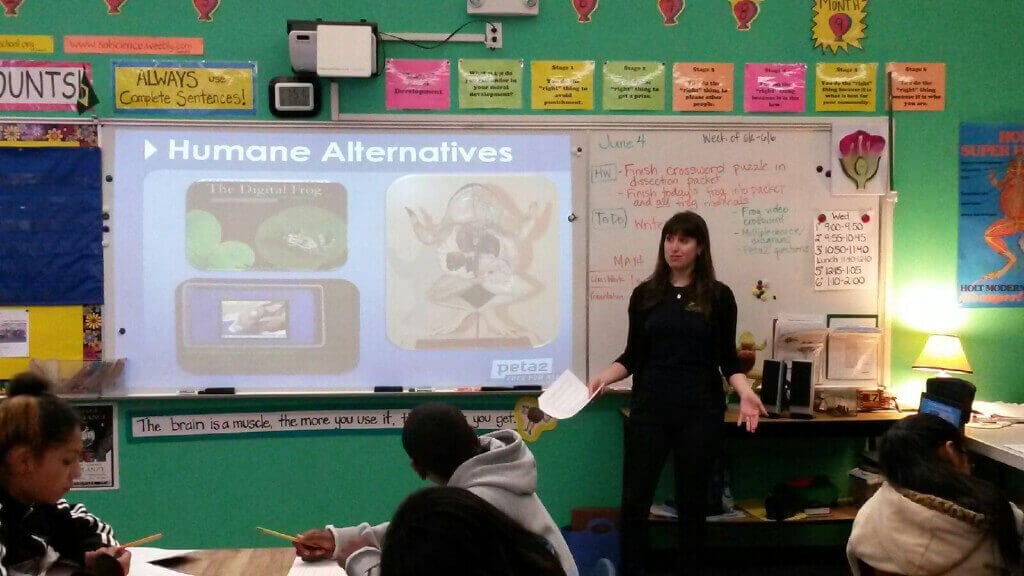6 Ways for Summer School Teachers to Make a Difference
Not every teacher gets the summer off, but with these tips, you can make the summer as life-changing for your students as the rest of the year:
-
Grow a Vegetable Garden
Summer is the perfect time to teach your students how to grow delicious plant-based foods. Try an urban garden or a classroom garden with veggies and fruits that are in season, like bell peppers, corn, grapes, strawberries, tomatoes, zucchini, and many others. If you want to go above and beyond, do a quick, easy cooking demonstration with your students—make strawberry milkshakes with the strawberries you’ve grown and vegan ice creams like So Delicious and Coconut Bliss.

-
Volunteer at an Animal Shelter
Call your local open-admission shelter (avoid “no-kill” shelters that sentence animals to years in cages or turn away animals they deem unadoptable) and see if it has a summer program for student volunteers. This will give your students a real-life experience showing how their choices affect animals in their community. Teach them the importance of spaying and neutering by educating them about the homeless-animal crisis in your area and by spending time with abandoned animals in need of new homes.
For older students, see if they can set up interviews with cruelty caseworkers or emergency workers at the local animal control or city shelter.

Need an easy way to supplement your curriculum (and give your students a break from the usual routine—it is summer, after all!)? Choose one of these animal-friendly films and write up a few discussion questions to use afterward to help students process the information.
In addition to providing you with great online resources, we’re also available to speak to your school. If you’re located in Southern California, we can appear in person—and if not, we can arrange to give a presentation via Skype.

-
Volunteer to Clean Up Your Community
Get your students outside and into the sunshine. Volunteer to clean up a local park or beach, and teach your students the importance of never littering and always throwing trash away. This teaches an important lesson about our impact on our local environment and the animals in it. Use this lesson plan to help guide you.
-
Take a Field Trip to a Local Vegan Restaurant
Many Spanish classes take their students to authentic Spanish restaurants—why not take your students to a vegan restaurant to show them how delicious healthy, environmentally friendly, and cruelty-free foods can be? Call a local vegan restaurant, and see if it can accommodate your class and offer a special low-cost student-friendly menu. Many vegan chain restaurants like Native Foods and Veggie Grill have great cheap kids’ meals.






